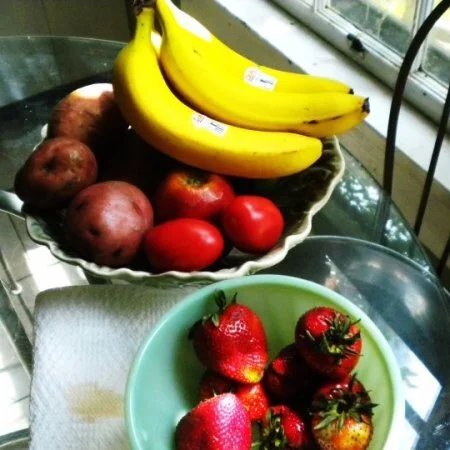Elders, Tables, & the Wisdom of Radical Welcome
I’ve been thinking and writing about grandparents lately.
A few months ago, I started a series on my personal blog called “Tables and Grandparents,” a series that captures moments of learning and love gleaned from my great-aunt and grandparents, particularly related to food and moments around tables.
Speaking as a white middle-class American living in the digital age of our current cultural moment, I think we’re losing too many stories of our elders. Our churches and places of worship are among the few remaining spaces where intergenerational conversation and sharing take place, and even in many church contexts we segment congregants by age: youth upstairs among pool tables and couches; seniors in stuffy Sunday school classrooms with old pianos. What would it look like to carve out more intentional spaces for the sharing of wisdom across generations in our faith, neighborhood and civic spaces? I’m curious about the ways in which excavating and remembering the stories of those who paved the way before us can put us in touch with our identity. I’m curious about how we can acknowledge family stories and questions we ask as we excavate our memories or sit down with our grandparents/elders. How can we understand them as primary sources for understanding who we are, where we’ve been, and where we’re called to go as kin?
My paternal grandmother Linda always sets an extra place at the table. Whether it’s for Judy, her next-door neighbor who makes amazing zucchini bread, or Tim, her construction worker friend who once dressed as Santa Claus at our family’s Christmas celebration, the preparation of extra food for guests is a given for Grandma Linda. Tim, Judy, or her best friend Doris of 50+ years are frequent guests, but occasionally a new friend or family member joins during our family reunions at Christmastime or during summer visits to the Jersey shore. After said new guest piles their plate full of decadent dishes like cucumber salad, succotash, macaroni and cheese, or her famous Pennsylvania Dutch-style noodles with butter-soaked bread bites, she eagerly asks questions: about who they are and what their story is. She’s also known to not shy away from asking about their political opinions, and engaging in some, ahem, lively debate if they differ from hers.
I share this because I think Grandma L embodies the kind of welcome that goes beyond simply inviting someone to sit at a table. Sometimes welcome goes beyond that; it involves bringing our curiosity and our acceptance vocally into the room, by inviting stories and asking the guest to co-create and shape the space. It’s saying, “you’re not only welcome to sit here,” but “you bring value and unique perspectives as you sit here.” Not everybody’s table stories are romantic and pleasant; sometimes the table is hostile. Sometimes it’s the opposite of welcoming. What an opportunity, then, to extend compassion to our guests. And what a gift that the abundance of food and home cooking can create such a space.
Cheers to a summer of extending and receiving welcome: one that affirms who we are and what we bring.
In peace,
